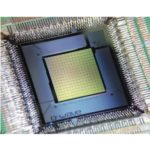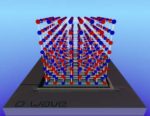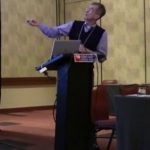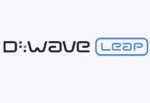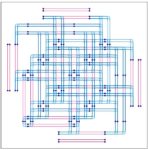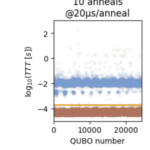In this podcast, the Radio Free HPC team looks at Quantum Computing and HPC and how the two spaces are evolving and cooperating. Their guest is Mike Booth from Quantum Computing, Inc. “Because QC is an accelerator, it fits nicely with how a lot of HPC is being done today.”
New Paper: Practical Annealing-Based Quantum Computing
Researchers at D-Wave Systems have published a new paper on Practical Annealing-Based Quantum Computing. “According to the paper, quantum annealing is the viable way forward to connect quantum hardware to real-world applications. Providing annealing-based QPUs as part of a complete computing platform within a declarative paradigm has made this nascent technology accessible for many users who, in turn, are helping to drive this approach forward.”
Practical Annealing-Based Quantum Computing
This paper provides an overview of quantum computers based on the annealing paradigm and manufactured by D-Wave is given. An introductory survey of this approach to quantum computing (QC), together with a snapshot of what is known about performance, is presented. Evidence-based predictions about developments in this region of the QC space are presented.
Lower-Noise Processor comes to Leap Quantum Cloud Service
Today D-Wave Systems announced the immediate availability of a lower-noise D-Wave 2000Q processor in the Leap quantum cloud service. Reflecting years of customer feedback, the lower-noise processor demonstrates improved performance, precision, and impact on quantum effects by reducing environmental noise in quantum annealing systems.”Lower noise is an important ongoing area of focus for D-Wave as we build our next-generation platform.”
Big Compute Podcast Looks at Quantum Computing Today
In this Big Compute Podcast, Steve Reinhardt from D-Wave Systems describes how quantum computing can be used to find optimal solutions in complex optimizations. “For decades quantum computers will be used in a hybrid mode with classical computers. So as a developer you don’t have to solve your complete problem. You can look at where the time is spent in computation and move those models to quantum computers. These modules may be optimized to be billions of times faster.”
D-Wave Leap Quantum Cloud Service comes to Europe and Japan
Today D-Wave Systems announced the geographic expansion of its Leap quantum cloud service to 33 countries in Europe and Asia. According to the company, Leap is the only cloud-based service to provide real-time access to a live quantum computer, as well as open- source development tools, interactive demos, educational resources, and knowledge base articles. “The range and robustness of early applications from our customers continues to grow, and customers are starting to see early value in using quantum computing to address real-world business problems.”
LANL Upgrades to D-Wave 2000Q Quantum Computer
Today D-Wave Systems announced that Los Alamos National Laboratory has upgraded their D-Wave quantum computer to the D-Wave 2000Q system. Los Alamos is investing in D-Wave quantum technology to expand its foundational quantum computing research, enabling exploration of new and diverse quantum computing applications. “We are pleased that the Department of Energy’s National Nuclear Security Administration Advanced Simulation and Computing program funded the upgrade of the D-Wave system, allowing us to continue to explore quantum simulation and algorithms at larger scales,” said Irene Qualters, associate laboratory director for Simulation and Computation at Los Alamos National Laboratory. “D-Wave has been a valued strategic partner in Los Alamos’ pursuit of a new technology that is part of the expanding heterogeneous landscape of computing. Such strong partnerships aid the Laboratory and DOE in the development of the nation’s workforce for the future.”
A Look Ahead at Disruptive Technologies for HPC
In this special guest feature from Scientific Computing World, Robert Roe looks at technology that could disrupt the HPC ecosystem. “As the HPC industry reaches the end of technology scaling based on Moore’s Law, system designers and hardware manufacturers must look towards more complex technologies that can replace the gains in performance provided by transistor scaling.”
D-Wave previews Next-Gen Quantum Computing Platform
Today D-Wave Systems released a preview of its next-generation quantum computing platform incorporating hardware, software and tools to accelerate and ease the delivery of quantum computing applications. “Quantum computing is only as valuable as the applications customers can run,” said Alan Baratz, chief product officer, D-Wave. “With the next-generation platform, we are making investments in things like connectivity and hybrid software and tools to allow customers to solve even more complex problems at greater scale, bringing new emerging quantum applications to life.”
New Paper: A First Step towards Quantum-Powered Machine Learning
“Given the remarkable performance improvements over many generations of classical microprocessors [7] and the impressive algorithmic improvements in mixed-integer programming tools like Gurobi [29] over the past several decades, it is surprising that D-Wave’s third generation hardware and our straightforward algorithm can be competitive at all. In the series of four chips that D-Wave has released, the number of qubits has approximately doubled from one generation to the next while the number of couplers per qubit has remained essentially unchanged. D-Wave’s fifth generation chip is expected to at least double the number of couplers per qubit [30, 3]. If this comes to fruition, it would likely have a significant, positive impact on the performance of the DWave for the problems we consider here.”


